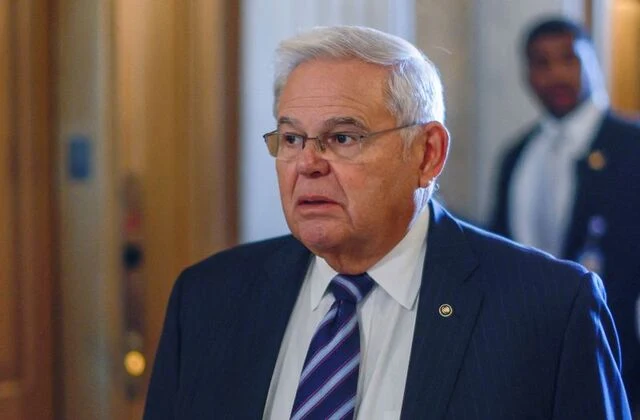In the intricate world of politics, allegations of corruption often capture the public's attention, offering a window into the complex interplay of power, influence, and ethical boundaries. The recent federal corruption trial of Senator Bob Menendez of New Jersey is a case in point, bringing to light a tangled web of accusations, legal arguments, and personal narratives. As the jury began its deliberations and reached a verdict, the nation watched closely, awaiting an outcome that could have significant ramifications for one of its long-serving senators. This article delves into the details of the trial, examining the charges against Menendez, the prosecution's case, the defense's counterarguments, the verdict, and the broader implications of this high-profile legal battle.
The Charges Against Menendez
Senator Bob Menendez faced a litany of charges, including bribery, extortion, wire fraud, obstruction of justice, and acting as a foreign agent . These charges stemmed from allegations that Menendez, along with his co-defendants—New Jersey businessmen Wael Hana and Fred Daibes—engaged in a years-long bribery scheme. According to federal prosecutors, the senator accepted substantial bribes, such as gold bars, hundreds of thousands of dollars in cash, and a luxury Mercedes Benz convertible, in exchange for using his political influence to advance the interests of various foreign and domestic entities.
Prosecution’s Case
The prosecution, led by Assistant U.S. Attorney Paul Monteleoni, presented a detailed case over nearly seven weeks, calling 37 witnesses and providing extensive evidence to support their claims . The central allegation was that Menendez used his position as a U.S. senator to benefit Egyptian military interests, interfere in criminal prosecutions, and secure investment opportunities for his co-defendants from Qatari officials. Prosecutors structured their case methodically, presenting evidence chapter by chapter to demonstrate the different facets of the alleged corruption schemes.
One of the prosecution’s key arguments was that Menendez's actions were "wildly abnormal" and indicative of someone engaged in corrupt activities . They detailed how Menendez allegedly attempted to influence the outcome of criminal cases and how he and his wife, Nadine Menendez, received lavish gifts as part of the bribery scheme. Notably, Nadine Menendez is also charged in connection with the case but will be tried separately due to health issues.
Defense’s Counterarguments
In response, Menendez's defense team, led by attorney Adam Fee, vigorously contested the prosecution's narrative. Fee argued that the prosecution failed to prove any of the charges beyond a reasonable doubt, emphasizing gaps in the evidence and inconsistencies in the testimonies presented by the prosecution's witnesses . The defense suggested that Menendez was unaware of any corrupt dealings and that the gifts and cash he possessed were the result of cultural practices and personal history rather than bribes.
A significant aspect of the defense's case was portraying Menendez as a victim of prosecutorial overreach. They contended that the senator's actions, while perhaps unorthodox, did not constitute criminal behavior. Furthermore, they pointed out that Menendez's custom of storing large amounts of cash was a precaution rooted in his family's experiences with the Cuban communist regime, rather than an indicator of illicit activities.
Related : Trump Reveals JD Vance as Running Mate for US Election
The Jury’s Role and Deliberations
As the jury began its deliberations, they faced the daunting task of sifting through weeks of complex testimony and evidence. Their decision would hinge on whether the prosecution successfully proved that Menendez's actions were part of a deliberate and criminal conspiracy, or if the defense's narrative of prosecutorial overreach and cultural misunderstandings held water . The jurors carefully considered the credibility of the witnesses, the plausibility of the defense's explanations, and the weight of the evidence presented.
The Verdict
On July 17, 2024, the jury found Senator Bob Menendez guilty on all counts . The charges included bribery, extortion, wire fraud, obstruction of justice, and acting as a foreign agent. The prosecution argued that Menendez accepted bribes in the form of gold bars, cash, and luxury items to use his political influence to benefit Egyptian military interests and other parties. This verdict marks a significant moment in Menendez's political career and legal standing.
Implications and Broader Context
The outcome of Menendez's trial carries significant implications not only for the senator himself but also for broader political and ethical standards in U.S. governance. A conviction could lead to severe legal consequences for Menendez, including potential prison time and the end of his political career. It would also serve as a stark reminder of the legal and ethical boundaries that public officials must navigate.
Conversely, an acquittal could have reinforced arguments about the difficulties in prosecuting high-profile politicians and the potential for legal processes to be influenced by political motivations. It would have underscored the importance of due process and the need for prosecutors to present airtight cases when pursuing allegations of corruption.
Conclusion
The trial of Senator Bob Menendez is a captivating legal drama that highlights the intersection of power, influence, and ethics in American politics. As the jury reached a guilty verdict, the nation witnessed a powerful message about accountability and justice. Regardless of the outcome, this case serves as a crucial reminder of the vigilance required to maintain the integrity of public office and the importance of adhering to the highest ethical standards.
Tags:
Trending

